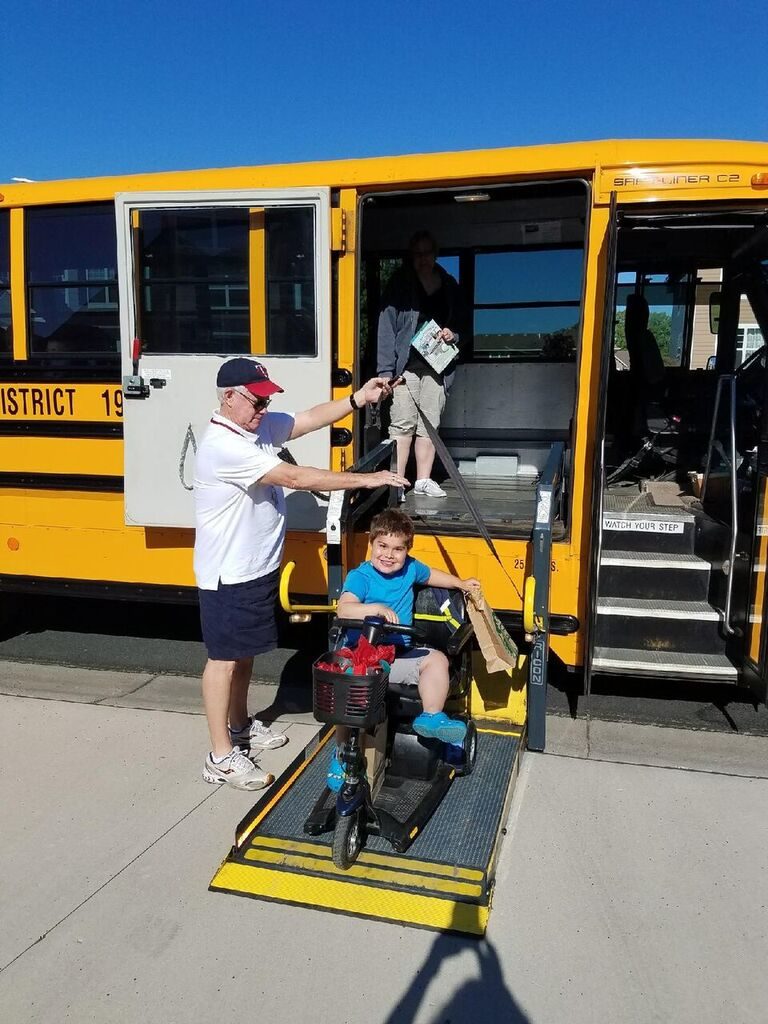 As kids settle into the new school year, we at MDA know that students aren’t the only ones learning new lessons. It’s also important for teachers to keep studying, especially if they have students in their classrooms living with neuromuscular diseases.
As kids settle into the new school year, we at MDA know that students aren’t the only ones learning new lessons. It’s also important for teachers to keep studying, especially if they have students in their classrooms living with neuromuscular diseases.
As part of MDA’s commitment to keep families at the heart of all we do, we have updated online resources designed for your child’s teacher so they can better understand the challenges faced by children and adolescents affected by neuromuscular conditions.
The guide includes answers to common questions teachers may have, including what a neuromuscular disease is and if it affects the ability to learn. It also provides tips for health and well-being in the classroom, including how to approach frequent or extended absences due to medical appointments and procedures, as well as additional tips for teachers and other school personnel, such as how to make accommodations or plan ahead for possible challenges facing students with neuromuscular diseases.
 The full suite of materials, which can be shared with your child’s teachers, can be found on MDA’s Guidebooks and Pamphlets section of our website and includes:
The full suite of materials, which can be shared with your child’s teachers, can be found on MDA’s Guidebooks and Pamphlets section of our website and includes:
- A Teacher’s Guide to Neuromuscular Disease
- MDA’s Educational Recommendations: Plan Ahead
- Recommendations for School Accommodations: Physical and Occupational Therapy
- Diagnosis: Charcot-Marie-Tooth disease (CMT)
- Diagnosis: Duchenne Muscular Dystrophy (DMD)
- Diagnosis: Limb-Girdle Muscular Dystrophy (LGMD)
- Diagnosis: Myotonic Dystrophy (DM)
- Diagnosis: Spinal Muscular Atrophy (SMA)
We also have updated our K-12 Education resource section of the website so that parents can be strong advocates for their children as they navigate school with a neuromuscular disease.
Students who live and learn with neuromuscular diseases come with their own unique set of deep strengths, and the teacher’s role in encouraging, supporting and motivating them will draw on many of the skills they are already using with their diverse class of students. We hope that these resources from MDA can augment your child’s teachers’ understanding of the importance of creating an accommodating learning environment so your child can thrive in grade school and beyond.
As you work to establish and maintain an open dialogue between your family and your child’s teachers, these resources are intended to be tools that will help support your family and teachers in evaluating your student’s specific needs. These resources should help assure teachers that they are not alone in this journey — and neither are parents and families.
As always, if you or your child’s teacher have additional questions, email the MDA National Resource Center or call 800-572-1717 (select option 1). MDA’s trained resource specialists are available Monday through Friday from 8 a.m. to 5:30 p.m. Central time to provide information, resources and one-on-one support.
Share these resources with your child’s teachers.
